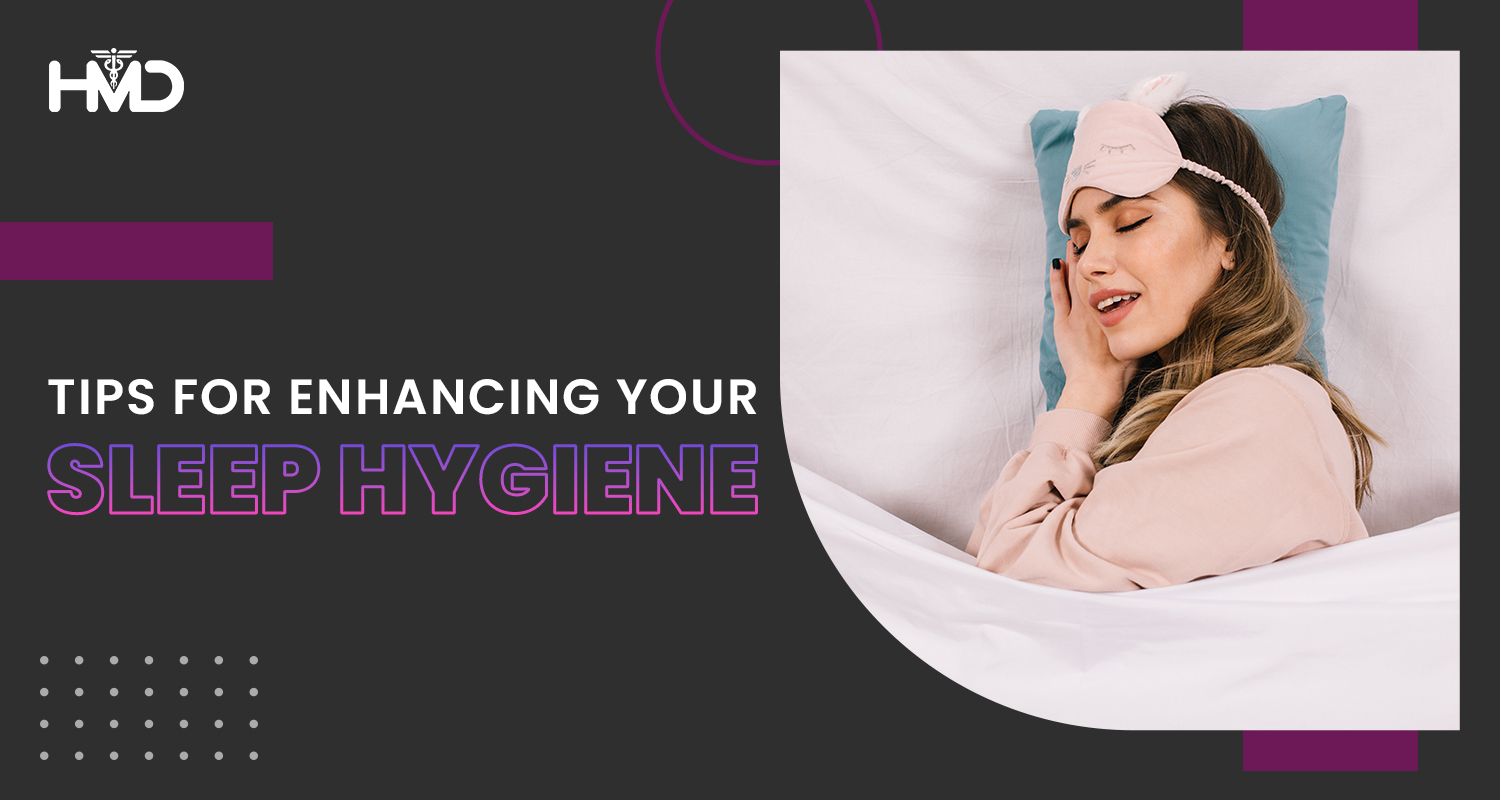

While it is well known that sound sleep can do wonders for a person’s physical and mental health, there is little emphasis on the critical aspect of sleep hygiene that helps one achieve the same. Improving one’s sleep hygiene can lead to better rest and a more energized start to the day. This can be achieved through small changes in our daily habits and environment. If you are looking for ways to improve your sleep hygiene, read on for some valuable tips and insights.
What Is the Meaning of Sleep Hygiene?
The term ‘Sleep hygiene’ refers to the various habits and practices that help you achieve restful and uninterrupted sleep. Difficulty falling asleep, frequent disruptions, or persistent daytime fatigue are common signs of poor sleep hygiene. By improving your sleep hygiene, you can enjoy a better mood, reduced stress, and enhanced overall health.
Tips to Improve Your Sleep Hygiene
1. Maintain a Consistent Sleep Schedule
Go to bed and wake up at the same time every day. This helps regulate your body’s internal clock and makes it easier to fall asleep and wake up naturally. Aim for 7–8 hours of sleep each night and avoid taking long daytime naps.
2. Limit Screen Time Before Bed
Electronic devices like phones and tablets emit blue light that can adversely affect sleep. To reduce disturbances, turn off devices at least an hour before bedtime and avoid keeping your phone by your bed.
3. Manage Stress
Stress and anxiety can keep you awake at night. Practice mindfulness techniques like deep breathing, meditation, and journaling. Creating a to-do list before bedtime can also help you eliminate worries and prepare for the next day.
4. Watch Your Diet and Exercise
Caffeine, nicotine, and alcohol can interfere with sleep, so avoid them in the hours before bedtime. Similarly, avoid heavy meals close to bedtime. Regular exercise, even for just 30 minutes a day, can considerably improve sleep quality.
5. Create a Sleep-Friendly Environment
Ensure your bedroom is cool, dark, and quiet. An ideal temperature is usually between 60–67°F (16–19°C). Invest in a comfortable mattress and pillows, and consider blackout curtains, an eye mask, or earplugs if needed.
Summing Up
Improving your sleep hygiene does not need to be about making drastic changes overnight. You may begin with small, manageable adjustments to discover what works best for you. While better sleep habits can greatly enhance rest, they might not be able to resolve more serious issues like insomnia or sleep disorders.
If sleep-related challenges persist, seeking professional advice is key. HMD Healthcare supports overall well-being with high-quality medical devices that contribute to better health. Be it managing specific health conditions or aiming to improve quality of life, the use of reliable healthcare tools can make a significant difference to everyday wellness.

